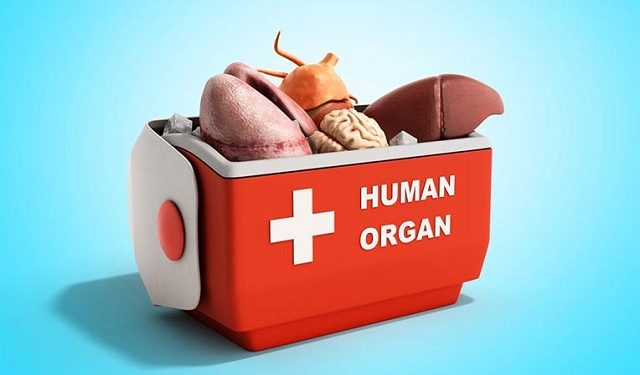By THE INDEPENDENT UG
Kampala, Uganda | THE INDEPENDENT | Donating an organ to a patient in need is considered a gift; an organ should not be sold, and it must not be removed from a living person without their consent. This encapsulates the essence of the law recently passed by the Parliament of Uganda and assented to by President Museveni.
The law designates Mulago National Referral Hospital as the pioneering transplant center and outlines specific criteria for hospitals to follow when seeking designation as an organ, tissue, or cell donation and transplant center.
Last year, Rubaga Hospital applied to the Ministry of Health for accreditation as an organ, tissue, or cell donation and transplant center. However, the Ministry of Health has yet to establish the Uganda Human Donation and Transplant Council.
Although Rubaga Hospital asserts that it possesses the necessary infrastructure and human capacity for organ transplants, the law stipulates, “A hospital shall not commence any activity related to the removal, storage, and transportation of any human organ, tissue, or cell for transplantation after the commencement of this Act unless the hospital is designated as a transplant center under this act.”
Article six of the law mandates the establishment of the Uganda Human Donation and Transplant Council. This council is tasked with overseeing and regulating organ, tissue, or cell donation and transplantation in Uganda, responsible for organizing, supervising, and regulating all national human organ and tissue and cell donation and transplant activities.
Dr. Frank Asiimwe, a Consultant Urologist and Transplant Surgeon at Mulago National Referral & Teaching Hospital, explains that while the Minister is responsible for organ transplant designation, they must be guided by a team of professionals.
Asiimwe emphasizes that the law sets parameters to ensure the safety of both the donor and the recipient of human organs, tissues, and cells. He dispels misconceptions about ritual practices associated with organ transplants, stating, “It is not about this popular talk about ritual practices or organ extraction.”
According to Asiimwe, the law defines what an organ transplant entails, who qualifies as a donor or recipient, who can perform a transplant, where it can be done, under what circumstances, and who must not donate. For instance, the law prohibits individuals below 18 years from donating organs, tissues, or cells.
The legislation enumerates about 17 organs eligible for transplantation, including kidneys, liver, lungs, penile, uterus, bones, bone marrow, hair, and cornea, among others. It also allows for the inclusion of any other organ, tissue, or cell for the purpose of transplant and donation.
Dr. Robert Kalyesubula, a leading kidney specialist in Uganda, explains that potential donors must undergo over fifty tests conducted by independent experts to ensure their eligibility. These tests, he clarifies, are primarily for the protection of the donor, emphasizing that organ transplants involve stringent measures to safeguard individuals from harm and manipulation.
“Organs Are Donated Out of Love”
Amidst concerns and discussions about a potential surge in human organ trafficking and harvesting in Uganda, Dr. Asiimwe emphasized that the law strictly prohibits any form of commercialization of organ donation. It is not permissible, for instance, to advertise the sale of organs.
“Organs must be donated out of love, out of affection, purely for the care of the person who is receiving. Not for commercial gain,” Asiimwe emphasized.
Uganda is among the African countries that have enacted laws imposing hefty penalties, fines, and jail sentences to combat illicit trade and organ harvesting. Practitioners involved in illegal organ harvests face fines of approximately two billion shillings and the risk of having their practicing certificates revoked. Dr. Asiimwe highlighted that recipients of illicitly harvested organs may also be subject to heavy fines and imprisonment.
Guiding Principle 5 of the WHO Guiding Principles on Human Cells, Tissue, and Organ Transplantation states that “The human body and its parts cannot be the subject of commercial transactions.” Informed consent is another crucial aspect of the law.
In any health intervention, informed consent can only be obtained after the person concerned has freely and knowingly consented to the procedure. According to Clause 67 (a) (b) and (c) of the law, the Council is responsible for informing the donor about the long-term benefits and risks associated with the procedure. This, according to the law, enables donors to make informed decisions about their donation. The WHO guiding principles emphasize the need for a balance of interests between recipients and donors, where the benefits to both parties outweigh the risks associated with the donation.
Unlike France, where recent legal amendments have made all individuals potential organ donors upon death, Uganda’s law does not make any presumptions. Individuals must swear an affidavit to confirm their voluntary donation of organs, tissues, or cells.
The primary objective of conducting organ transplants in Ugandan hospitals is to eliminate medical tourism and reduce the costs associated with traveling abroad for procedures such as bone marrow transplants for sickle cell disease, lung transplants for severe cases of TB, liver transplants, among others. In 2021, the Uganda Medical Board estimated that these medical procedures cost roughly $25,000, inclusive of travel and hotel expenses abroad.
Other aspects of the law include the establishment of standards for the storage of harvested organs, tissues, and cells; the creation of a database containing information on donors and recipients to be maintained by transplant centers, hospitals, and health facilities; and the establishment of procedures for the transplantation of organs and tissue from living donors, including due diligence.
The law also prescribes how consent should be given by donors and outlines offenses and penalties related to organ and tissue donation and transplantation.
URN







Discussion about this post